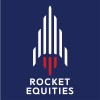

In Southeast Asia, companies utilize various capital-raising methods to secure funds, with projections indicating a total capital raised of US$22.4 billion by 2024. The region benefits from the economic powerhouses of China and India and developed economies like Japan, the Philippines, and South Korea, creating a promising investment landscape.
This guide looks into capital raising in the Philippines, offering insights into its intricacies and highlighting its role in empowering businesses to attain enduring growth and prosperity.
Capital raising is securing external financing to fuel a company's growth initiatives. This can encompass investments in core business development, mergers and acquisitions (M&A), or collaborative ventures like joint partnerships.

Access to capital is important for the growth of small businesses, driving their operations, expansion, and innovation. Investment banks, such as Rocket Equities, are essential facilitators in this process, bridging the gap between promising enterprises and investors. They expertly structure deals and offer valuable financial advice.
The Securities and Exchange Commission (SEC) is the primary regulatory body overseeing the Philippine capital market. It is responsible for approving corporate registrations and securities offerings, ensuring market integrity, and fostering the use of capital markets for business financing.
Whether launching a startup or expanding an established business, your capital-raising approach should be customized. Let's review the two main methods for securing financial resources.
Debt financing is a method where a company raises funds for working capital or capital expenditures by selling debt instruments to investors, who become creditors and receive a promise of repayment with interest.
How Debt Financing Works
When a company seeks capital, it can issue debt instruments such as bonds, bills, or notes. Investors provide funds in exchange for these fixed-income securities, expecting repayment of the principal plus interest.
Investment banks facilitate this process by structuring and underwriting the debt, making the issuance more attractive through instruments like convertible securities and mezzanine debt. Convertible securities allow investors to convert debt into equity, while mezzanine debt offers higher returns for taking on greater risk. Investment banks also ensure regulatory compliance, guiding companies through financial and legal requirements.
Equity financing raises capital by selling company shares to meet financial needs or fund growth. Sources include friends, family, investors, and IPOs, where private companies offer shares to the public. Companies like Google and Meta raised billions this way. Equity financing applies to both public and private firms.
How Equity Financing Works
In the Philippines, equity financing raises capital selling through common stock and other equity instruments like preferred stock, convertible preferred stock, and equity units. Rocket Equities aids this by providing strategic advisory, crafting equity stories, and structuring deals. They connect businesses with over 300 investors in Asia-Pacific and leverage sector expertise in areas like e-commerce and fintech.
Regulatory bodies like the SEC and Philippine Stock Exchange (PSE) ensure transparency by enforcing disclosure requirements and fair practices, safeguarding investors and maintaining market integrity.

The Philippine government has actively promoted capital markets as a viable funding source. They understand that access to funding empowers businesses and is an essential engine that drives growth. Here are the key steps involved in raising capital.
Successfully raising capital requires a clear understanding of the regulatory landscape. In the Philippines, the Securities and Exchange Commission (SEC) and the Philippine Stock Exchange (PSE) oversee capital markets, enforcing strict disclosure and reporting standards. Investment banks provide crucial expertise in navigating these regulations, ensuring compliance and optimizing capital-raising strategies.
The stage of your business is a critical determinant of suitable funding sources. Early-stage ventures typically rely on the high-risk, high-reward capital provided by angel investors or venture capitalists. As businesses mature and demonstrate traction, access to a wider range of financing options emerges, including public equity markets and debt financing.
A comprehensive assessment of your financial needs is essential. Convertible securities, which offer investors the potential for equity upside, can be attractive for growth-oriented companies. Mezzanine debt, a hybrid of debt and equity, provides a flexible financing solution for expansion or acquisitions while offering investors higher returns.
Identifying ideal investors or lenders requires meticulous research and strategic alignment. Seek out entities whose investment history and industry focus complement your business objectives. Investment banks, such as Rocket Equities, can be invaluable partners, offering deep industry knowledge and extensive investor networks.
Partnering with them will help you understand your investor preferences for different financing structures for successful fundraising. Aligning your business needs with the investment criteria of potential backers enhances your chances of securing optimal capital.
Discussing the terms of a funding deal is a complex process involving valuation, ownership, control, and exit strategies. To secure favorable conditions, businesses often rely on the expertise of legal and financial advisors, including investment banks.
These professionals are instrumental in structuring deals, safeguarding investor interests, and ensuring compliance with regulatory mandates. Investment bankers utilize their deep market knowledge and negotiation prowess to assist businesses in securing optimal terms and efficiently closing agreements.
With a global perspective and Asian market expertise, Rocket Equities excels in impactful capital raising. Their seasoned team offers customized guidance, utilizing extensive networks and strategic insights to navigate fundraising complexities.
Rocket Equities has effectively facilitated capital-raising activities for notable companies like Sourcefit, Onpoint, and Great Deals. Through strategic advice and support, they have propelled these businesses along their growth trajectory, enabling them to scale their operations and expand their market presence.
Capital raising in the Philippines is promising, especially with Rocket Equities' expertise and tailored support. The team’s exceptional track record ensures you secure the funding needed to expand and stay competitive.
If you're seeking a partner to navigate the complexities of raising capital, contact us today and schedule a meeting with our team. Discover how we can help you secure the funding your business deserves.

Rocket Equities Team
2024-10-04 • 7 min

Rocket Equities served as the exclusive financial advisor to the Philippines' leading digital rewards and incentives platform, Giftaway, Inc., in securing a US$ 18M investment from Aura Private Equity and its co-investors.

CREA, a prominent Thai e-commerce player, has been strategically acquired by OnPoint, Vietnam's leading e-commerce enabler, with advisory support from Rocket Equities.
